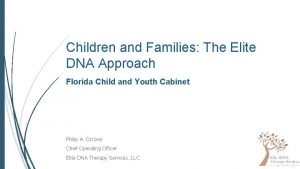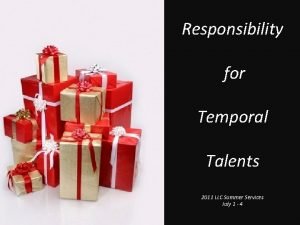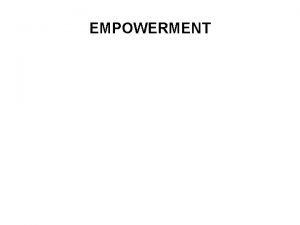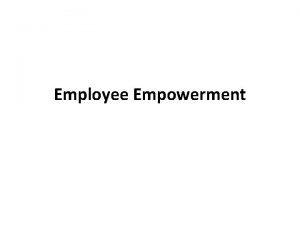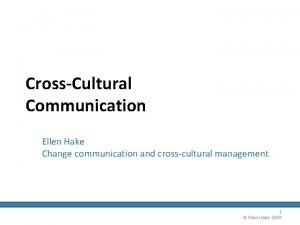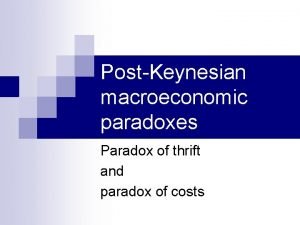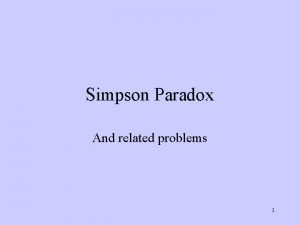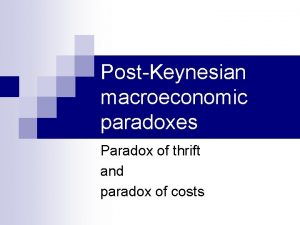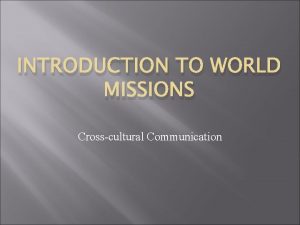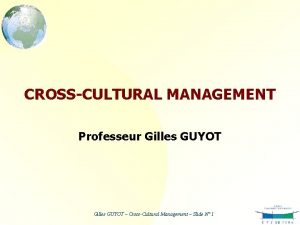Paradox CrossCultural Consulting Training and Empowerment LLC Services










- Slides: 10

• Paradox Cross-Cultural Consulting, Training and Empowerment LLC • Services for helping the helper • Cross-cultural mental health with children and families, trauma, supervision, cultural competence • MSSW – University of Tennessee, LISW-S • Community Lecturer – The Ohio State University • Ph. D Student – Antioch University Graduate School of Leadership and Change • Licensed Zumba® Instructor Cherie Bridges Patrick, MSSW, LISW-S

• DSM-5 Diagnostic and Statistical Manual of Mental Disorders • • Trauma and Stress Related Disorders Depression Anxiety Neurodevelopmental Disorders • Autism Spectrum, ADHD, Learning Disorders • Schizophrenia Spectrum Disorders Disruptive, Impulse-Control and Conduct Disorders Mental/behavioral health

• Somali immigrants and refugees and others in social systems • Children, adolescents and parents • Framework – Critical social work • Analysis of systems that maintain and perpetuate inequality • Self-reflection • Central intersectional focus on race, class and gender • Concerned with contextualization Critical Multicultural Mental Health

• “Medicalization of human suffering” (Kleinman, 1997) • “Culture of victimhood” (Hughes, 1994) • “spectacular growth within Western culture in the power of medical and psychological explanations for the world, and in the pronouncement of mental health professionals” (Gozdziak, 2004, p. 204) “Americanization” of Mental Health

• What is suffering? “A universal aspect of human experience in which individuals and groups have to undergo or bear certain burdens, troubles and serious wounds to the body and spirit” (Kleinman, 1995, p. 101) Suffering

• “When suffering is defined as a medical problem, it is removed from a public realm and is no longer within the purview or power of ordinary people; rather it is raised to a plane where only professionals – medical or mental health care providers – can analyze and discuss it” (Gozdziak, 2004, p. 206) Suffering

• “The healing of the emotional wounds inflicted on mind and spirit by severe violence is also a natural process. Mind and body are powerfully linked, from the molecular level up to the thoughts and social behaviors of a person. Mind and body are similarly interrelated in their potent curative influence. After violence occurs, a selfhealing process is immediately activated, transforming through physical and mental responses, the damage that has occurred to the psychological and social self” (Mollica, 2006). Healing

• Clinician interventions must be informed by their clients contexts rather than solely on clinician training. • Looked to anthropology and ethnography • “Offers health professionals the opportunity of seeing health and diseases through the eyes of patients from a myriad of cultures (Spradley, 1979, iv. ) Indigenous Interventions

• 16 year old Somali male • Living with mom and sister – dad deceased • Mom arrived in the U. S. followed by Mohamed and his sister • Complex traumatic experiences The case of Mohamed

• Gozdiak, Elzbieta. (2004). Training Refugee Mental Health Providers: Ethnography as a Bridge to Multicultural Practice. Human Organization, Vol. 63, 2. • Kleinman, Arthur. (1995). Writing at The Margin: Discourse Between Anthropology and Medicine. • Mollica, Richard F. (2006) Healing invisible wounds: Paths to hope and recovery in a violent world. Nashville, TN: Vanderbilt University Press. • Spradley, James P. (1979). The Ethnographic Interview. New York: Holt, Reinhart and Winston. References




